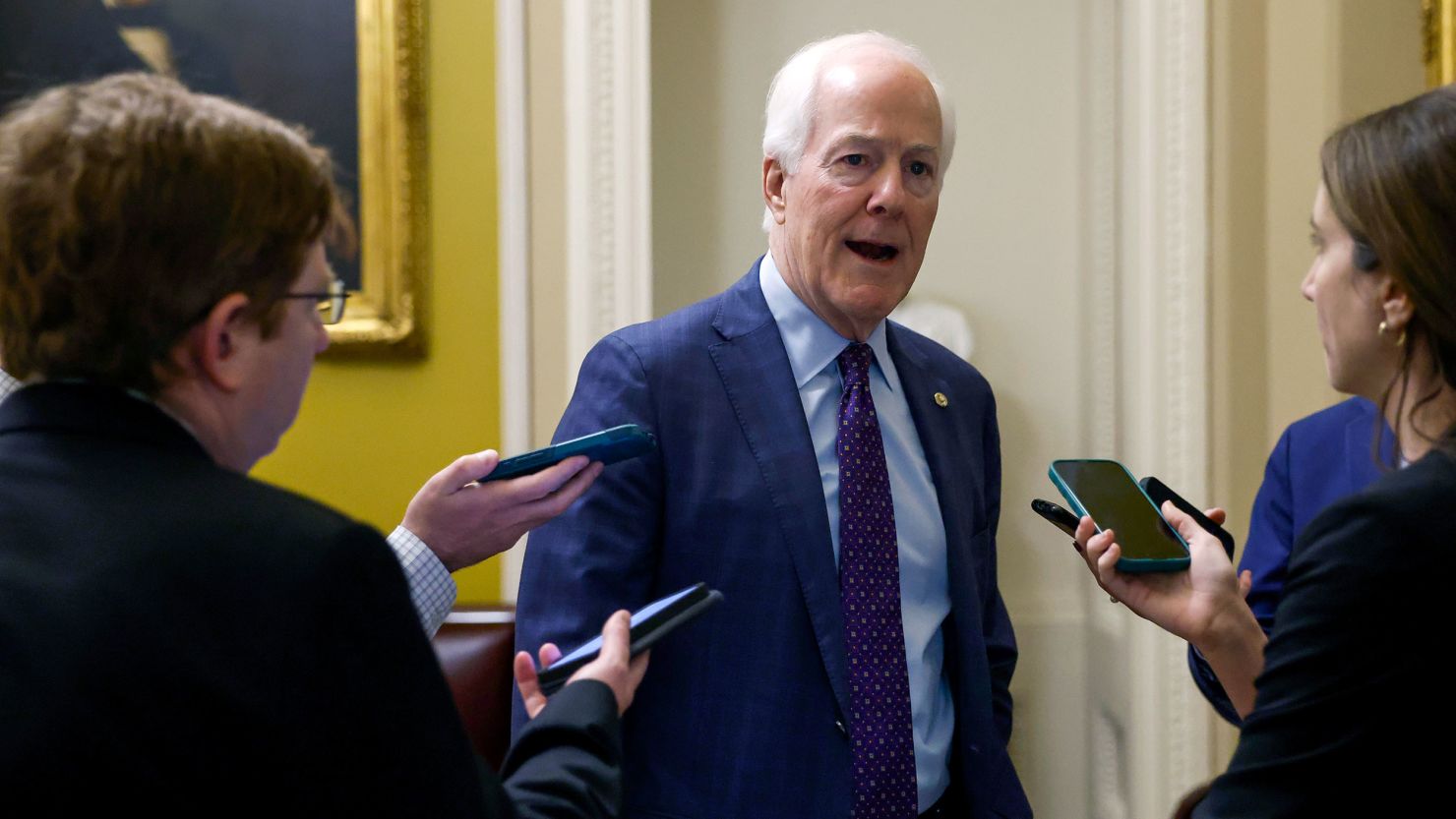The Senate on Thursday voted to advance a $95.3 billion foreign aid package that provides assistance for Israel and Ukraine after Republicans blocked a broader bill that included border security measures earlier this week – but a debate over amendments continues to slow down passing the legislation out of the chamber.
The major foreign aid package now moves one step closer to a final vote, which could still be days away. All senators need to agree to a timing agreement to swiftly pass legislation out of the chamber, and opposition to foreign aid from key senators is likely to slow down the process. Since Republican Sen. Rand Paul of Kentucky, who has long opposed foreign aid, said he will not agree to speed up this process, it will be a laborious path for the Senate to finally pass the bill.
“I think we should stay here as long as it takes,” Paul told CNN’s Manu Raju. “If that takes a week or a month, I’ll force them to stay here to discuss why they think the border of Ukraine is more important than the US border.”
Thursday’s vote advanced the bill on a tally of 67 to 32. Senate Majority Leader Chuck Schumer called it “a good first step,” saying that “failure to pass this bill would only embolden autocrats like Putin … who want nothing more than America’s decline.”
If the bill is eventually passed by the Senate, it would next go to the House, where it’s unclear when or whether Speaker Mike Johnson would hold a vote on it. Many House Republicans are opposed to further aid to Ukraine.
Senators were supposed to be on recess next week, but Schumer said on Thursday that the Senate will keep working on the bill “until the job is done.”
The foreign aid package includes billions of dollars to support Ukraine and for security assistance for Israel, as well as humanitarian assistance for civilians in Gaza, the West Bank and Ukraine.
The bill includes $60 billion to support Ukraine in its fight against Russia, $14.1 billion in security assistance for Israel, $9.2 billion in humanitarian assistance and $4.8 billion to support regional partners in the Indo-Pacific region, among other provisions, according to the Senate Appropriations Committee.
The Senate moved forward with the foreign aid package one day after Senate Republicans blocked a bill that would have included the aid along with a bipartisan border security deal. Republicans had initially demanded that border security be part of the bill, but went on to reject the deal amid forceful attacks on the measure by former President Donald Trump and top House Republicans.
The move was a stunning rebuke by Senate Republicans of a deal that would have enacted restrictive border measures and was crafted in part by one of their own members – James Lankford of Oklahoma, one of the chamber’s most conservative senators.
Now, Senate Republicans are divided over the foreign aid package, and some are pushing for amendments to make changes to the bill – including to add measures on immigration and border policy.
Republican Sen. Lindsey Graham of South Carolina defended demands for more border security amendments to the foreign aid package, after voting to kill the version that included the bipartisan border deal on Wednesday.
“Our border is a bigger national security threat to us, in the short term, than Ukraine. We have not even begun to do what we could do to secure the border. I’ve got ideas, I want people to vote on them,” Graham told CNN. “I haven’t done all I can do. And when I have made a reasonable effort, when I’ve taken the ideas I’ve had today, and they’ve been flushed through the system, I will support Ukraine.”
GOP Sen. Tommy Tuberville of Alabama said, “We talked about amendments, the direction we need to go on that, talked about continuing to fight for something at the border.”
Tuberville also defended their push for border amendments, less than a day after voting down the other package.
“There needs to be some adjustment to the border bill we had, and try to at least look like we’re fighting. We’re, I mean, we got to make a fight for the border,” he said.
This story and headline have been updated with additional developments.
CNN’s Manu Raju contributed to this report.







